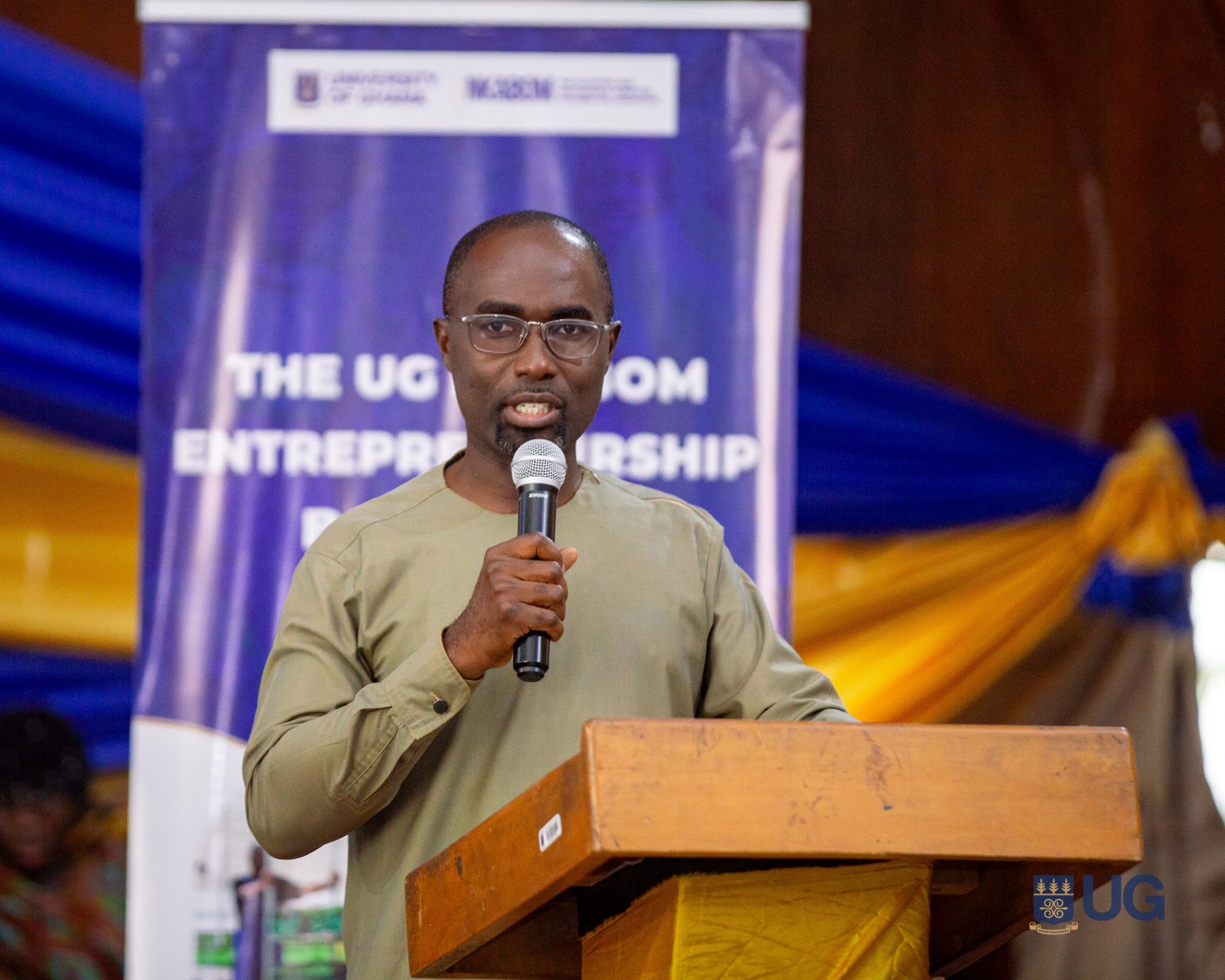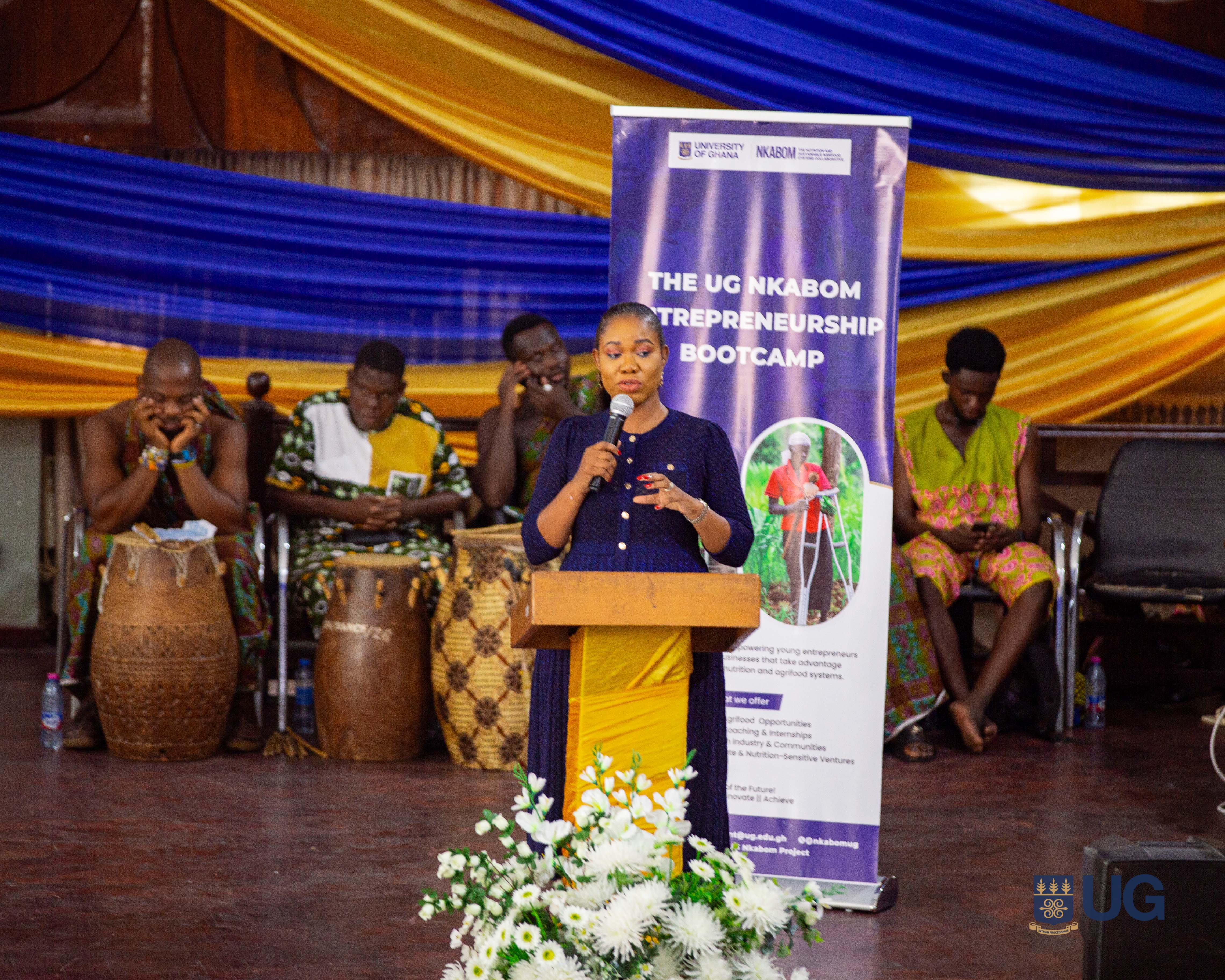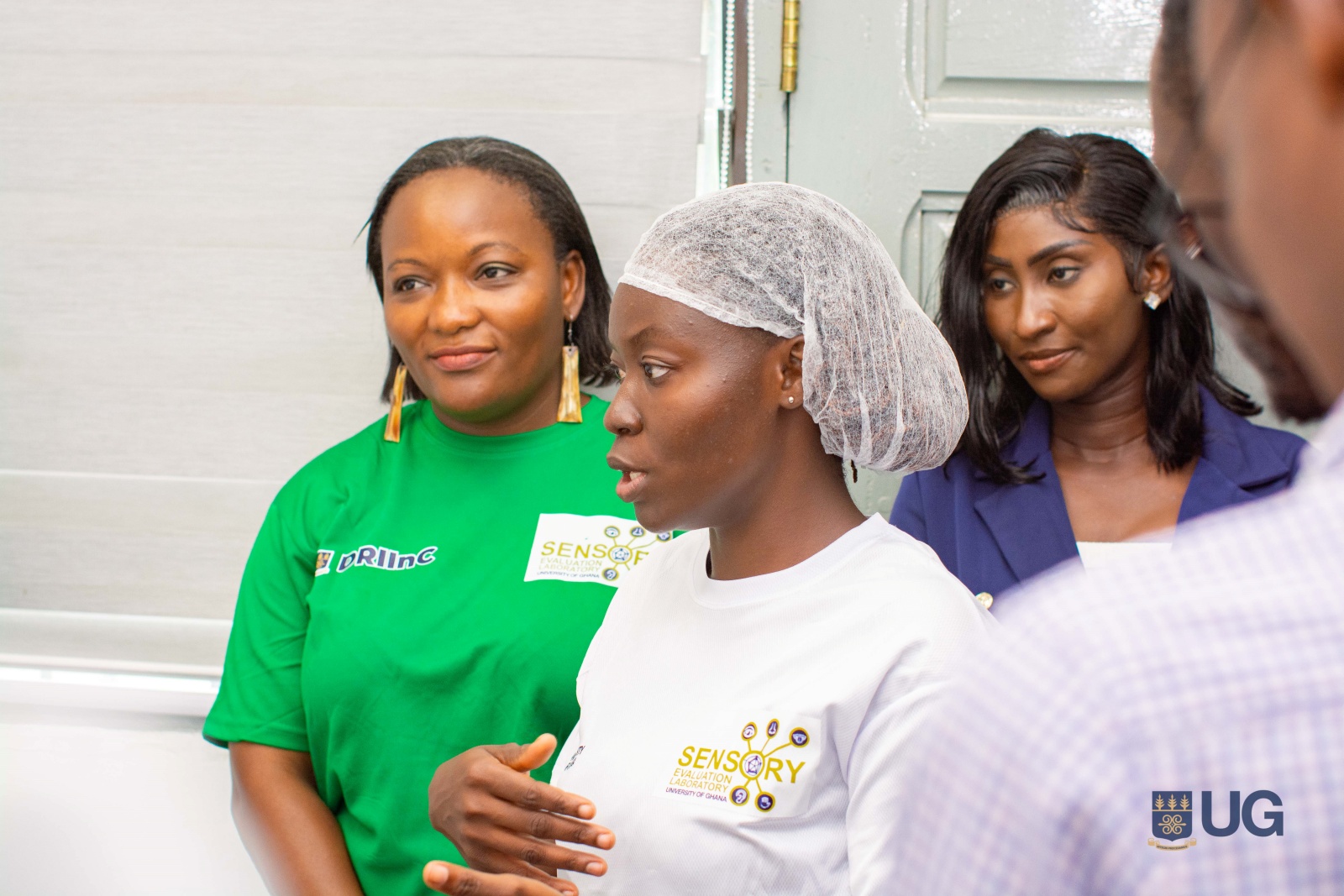UG Nkabom Launches Entrepreneurship Bootcamp and Roadshow

The UG Nutrition and Sustainable Agri-food Collaborative (UG Nkabom) has launched an initiative to support the incubation of 3000 agribusiness start-ups over the next five years. The first cohort of this initiative, about 200 students and graduates of the University of Ghana, have joined an entrepreneurship bootcamp launched at a meeting of nutrition and agrifood systems stakeholders in Accra.
At least 100 of these participants would also receive mentorship support and funding to launch their own agribusinesses.
Over seven days, the young entrepreneurs have been guided to hone their business ideas, and connected with industry players to expose them to the intricacies of the sector. They have also been immersed in agric communities and industries through a community network roadshow to give them a first-hand experience of the industry and opportunities within.

Speaking at the launch event, the Pro Vice-Chancellor of the University of Ghana (UG) in charge of Research, Innovation and Development, Professor Felix Ankomah-Asante, aligned UG Nkabom with three of the University’s five strategic pririties: transformative student experience, engagement and partnerships, as well as sustainable resource mobilisation and stewardship.
He emphasised the initiative’s relevance to the agri-food value chain, describing it as a, “transformative intervention, one that not only helps bridge unemployment gaps but also creates sustainable entrepreneurship opportunities while contributing to national nutrition and food security.”
![Dignitaries at the launch event, including UG Pro Vice-Chancellor, Prof. Felix Ankomah Asante [second left]](/sites/default/files/inline-images/IMG_1154.jpg)
Providing an overview of the Collaborative’s vision and intended impact, the Principal Investigator, Professor Richmond Aryeetey, highlighted three pivotal work streams, education, access and success, and entrepreneurship, as the core drivers of a youth-led, nutritious, sustainable, and thriving agri-food system.
These pillars aimed to equip young people with relevant knowledge and skills, ensure inclusive participation and retention in agri-food-related opportunities, as well as foster innovation and enterprise development across the value chain.

The entrepreneurship lead for UG Nkabom, Professor George Acheampong, outlined its goal of cultivating youth-led agribusinesses through mentorship and market access. “We’re not just creating businesses; we’re nurturing a new generation of entrepreneurs equipped to compete globally while driving inclusive growth in Ghana’s agri-food sector,” Professor Acheampong remarked.

This view resonated well with the future agribusiness entrepreneurs. “This initiative has helped correct the misconception I had that an agric-related career was synonymous with poverty and looking dirty. I see now that a fulfilling, enriching and prosperous career in agric is possible with the mentorship, and access to funding support this project offers,” one participant noted.

The UG Nkabom Collaborative is part of the Nutrition and Sustainable Agri-food Collaborative comprising five local institutions - University of Ghana, Kwame Nkrumah University of Science and Technology, Koforidua Technical University, Ashesi University and the Association of Ghana Industries - in partnership with the Mastercard Foundation and McGill University.
UG Nkabom seeks a more inclusive, resilient, sustainable and youth-led agri-food system in Ghana by connecting Ghana’s youth to opportunities within. By bridging academic knowledge with real-world opportunities, the Collaborative will empower young entrepreneurs to take an active role in transforming the agri-food landscape. It is hinged on three pillars: education, access and success and entrepreneurship.
Under the education pillar, the Collaborative will launch new academic programmes and short courses aimed at developing a critical mass of youths with nutrition and agrifood systems competencies to service the sector.
The access and success pillar aims to open up training opportunities to underserved youths such as internally displaced, girls and persons with disabilities by offering them educational scholarships and grants. The entrepreneurship pillar focuses on helping young people to initiate and scale up businesses within the nutrition and agrifood systems.









